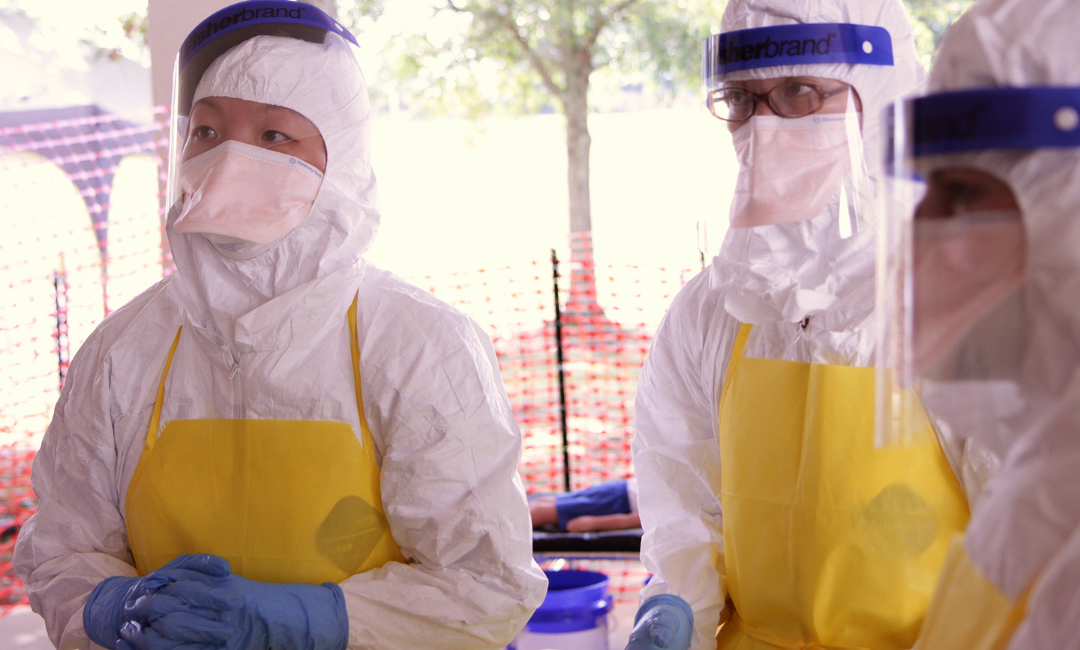DSU vs. North Dakota Board of Nursing
Days after the initial coverage, Easton himself chose to resign, alleging in a statement released Monday, July 15, that the NDBON told him he “cannot fight for our students” or look for new faculty.
“If I cannot do whatever I can for students, including looking for faculty members so they can continue their education, I cannot do my job, because fighting for students is my job,” he said.
Easton said in the statement that the day after he received the faculty resignations, he informed the NDBON of the university’s efforts to “rebuild” the faculty, which included posting the vacancies, contacting local professionals who are licensed to practice in the state, and seeking assistance from “sister institutions.”
He then alleged that the NDBON found DSU in “noncompliance with the requirement of having the nurse administrator provide oversight” for the hiring process.
“As the North Dakota Board of Nursing probably realizes, though perhaps not because it did not interview me, it is not humanly possible to hire a nurse administrator quickly,” Easton said, detailing the hiring process for the North Dakota University System.
The NDBON issued its own statement, contradicting Easton’s account and denying it forced his resignation:
Rather, on July 12, 2024, the ND BON issued a standard notice to DSU of multiple nursing program shortcomings for review at the ND BON board meeting on July 25, 2024, resulting from the lack of faculty from a mass resignation by DSU’s nursing administrator and professors on or around July 10 and 11, in conjunction with previous survey results of DSU’s nursing program, detailing significant discord between Mr. Easton, administration, and the nursing faculty on June 4, 2024.
The State of DSU’s Nursing Program
Easton said in his statement that “though we love DSU Nursing,” the university can’t spend more than $500,000 to produce 16 registered nurses (the number eligible to take the NCLEX from most recent graduating class). University administration, he said, has encouraged the program to “innovate” to achieve success.
“A big part of the problem, at least in my judgment, is that it takes four years to become an RN at DSU, but only two years at many other ND institutions,” Easton said. “It is very difficult to convince a potential student that they should spend four years at DSU to become an RN, when they can become an RN in two years at many other institutions in North Dakota and elsewhere.”
When Easton’s efforts to shift to a two-year RN program with a four-year bachelor’s degree weren’t working, he said he “switched strategies to boost DSU Nursing’s financial stability.” This included notifying faculty he wouldn’t require the shift to a two-year RN program.
NDBON will continue working with DSU “to restore its nursing education program” following Easton’s resignation.
The North Dakota Nurses Association said in a position statement released July 18 that it held an open forum in which DSU students expressed “discontent with the university’s communication efforts.”
“We extend our solidarity to the DSU nursing students and faculty who are currently grappling with uncertainty and a lack of clear communication regarding program changes,” the NDNA stated. “Timely action is critical. DSU students deserve immediate transparency and clear communication regarding the future of the nursing program.”
Maryville State University and DSU have since entered into a collaborative agreement, the Dickinson Press reported.
Industry Context
The resignations highlight “a critical and growing crisis in nursing education: the shortage of qualified nurse educators,” according to the National Consortium of Academic Nurse Educators (NCANE).
“It is imperative that we take immediate and decisive action to support and strengthen nursing education,” NCANE said in a statement released July 12. “By doing so, we ensure the preparation of future generations of nurses who are vital to the health and well-being of our communities.”
As Nursing CE Central previously reported, faculty age, a wave of retirements, and higher compensation in other settings have been named as contributing factors to the faculty shortage, according to the American Association of Colleges of Nursing.









